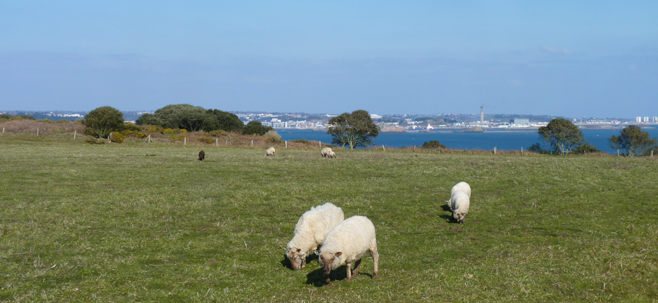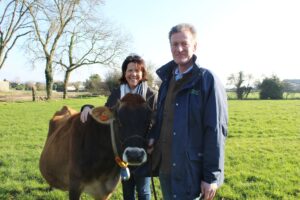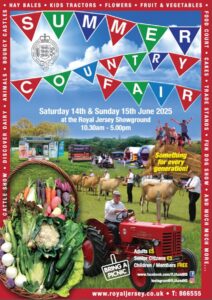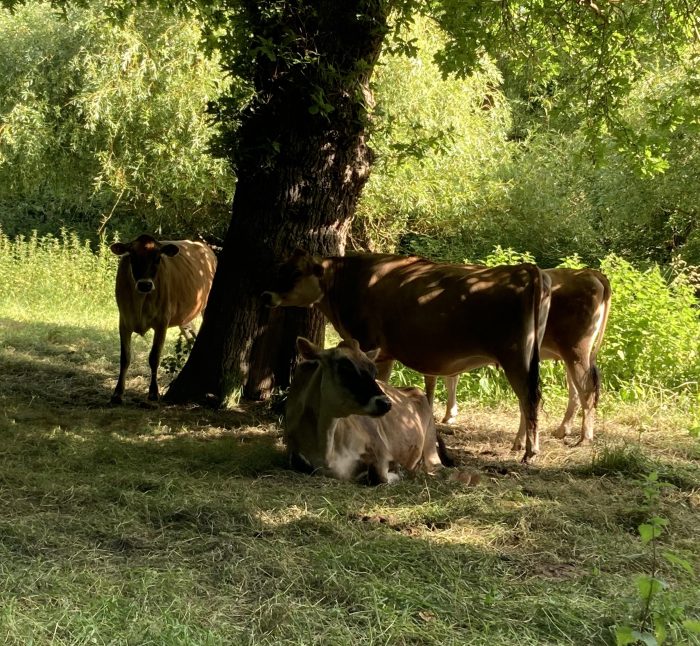
By Peter Harris
Our guest columnist is Peter Harris (not our Jersey Magistrate of the same name!). He has no close connection with Jersey, but writes about the concept of ‘Deep England’. Most countries have a similar concept, be it La France Profonde, or Alt’ Deutschland, or many other ideas of what constitutes the soul of old established nations and communities.
Jersey is not exactly an old established nation, but it is certainly an old established community, that goes back millennia. Like other similar nations or communities, the soul of Jersey is more likely to be found in its rural aspect, or perhaps in the often discredited ‘Jersey Way’.
How could we best define ‘Deep Jersey’? Comments welcome – Ed.
Recently, Douglas Murray ruminated in The Spectator as to what one might mean by the phrase ‘deep England’. His meditations were sparked by recalling General de Gaulle’s speech to the Free French that deployed the phrase ‘la France profonde’ to stir up resistance to the Nazi occupiers. French partisans were to fight for what is quintessentially French. What this quintessence is has been much debated. The French language and literature, the countryside, provincial culture, a de-communised socialism and a reformed Catholic Church have all been proposed as elements of what it means to be French per se.
Murray’s deep England is rural, literary, provincial and religious also. Inevitably, it includes the weather, that go-to, phatic topic at which the English excel. It is the weather that Murray first noticed on his recent trip to East England where the trees were clad with frost. Visiting Wiltshire, he saw its valleys disappearing into the fog. Whilst staying at friends’ houses, Murray discussed favourite authors and later there was a trip to the local church. He makes no mention of political discussion which is customarily banned from English dinner tables as too contentious, though Murray shares his guests’ concerns as to how best to teach children about England’s past.
Murray is right to equate rural England with deep England. It is only since around the middle of the 19th Century that most English people were urbanised. If we are to connect with our ancestors who are the founders of deep England, it is in villages and hamlets, meadows and fields, lanes and paths, woods, forests and harbours where we will find their traces. We will find them in local myths, legends and histories, customs and traditions and ancient books and buildings which have survived the abrasions of time and change.
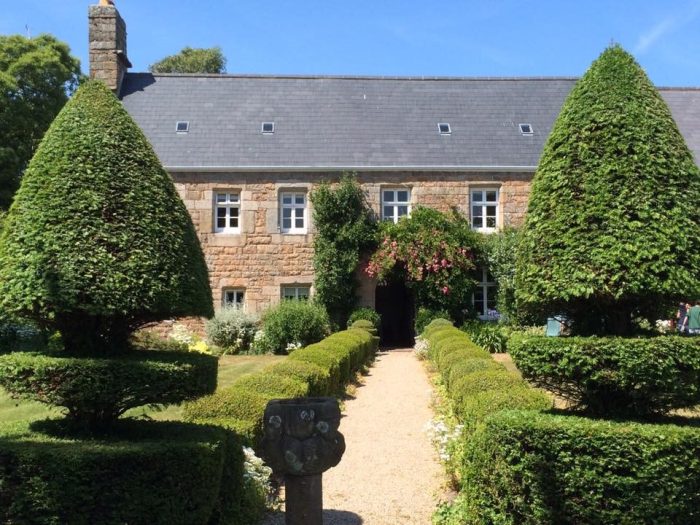
Those who are not English but whose ancestry is, have sought their beginnings in the English pastoral. The American immigrant and poet, T. S. Eliot, who became more English than the English, eulogised the village of East Coker from which his ancestors came. In the Second of his Four Quartets, Eliot’s narrator sees through time’s vistas East Coker’s harmonious community moving to the seasons’ rhythms and symbolised by a dancing married couple. It is to such villages that the ghosts of England’s war dead return. In Wilfred Owen’s poem Anthem for Doomed Youth, the ‘bugles’ of ‘sad shires’ call home the souls of those killed in Flanders.
For Alexander Poots, deep England is not a place but a shock. By this he means the jolt that comes when suddenly faced with the profound age of deep England accompanied by feelings of recognisance and belonging. It is in the artistic and poetic accomplishments of Simon Palmer and Geoffrey Hill that Poots gets his shocks.
There is a sacred place, though not in rural England, which provides a powerful shock. That place is Westminster Abbey. There lie a number of English kings and queens. What is shocking is that buried together are those who were enemies in life. The Protestant Queen Elizabeth I is buried with her half-sister the Catholic Queen Mary I in the same tomb. Buried there also is Edward VI whose Protestant reforms Mary expunged. Elizabeth’s successor James I, whose accession confirmed the end of Catholic dynasty in England, rests nearby and Charles II and the monarchs who denied his brother James II the English crown, William III and Mary II, are all buried in the same vault.
In this we see the symbolic reconciliation of enemies who, though possibly unreconciled in life, are so in death. This is what is so shocking about deep England: that it is the common ground between opponents that transcends dynastic, religious and political conflict. It is the search for the common good which is the good of all. It is an outlook that is not ideological for ideology turns opponents into enemies whereas notions of common ground and the common good enable those who disagree to cooperate. This is not chauvinist mythology but historical reality. Thus, what could be more English than queues, charities and parliamentary democracy?
Therefore, we must resist the foreign ideologies imported into our midst such as critical race and gender theories that seek no common ground and no common good but divide people into irreconcilable camps. May we find a way of doing away with mass immigration that brings into England many who know nothing of deep England and do not care to know either. Let us do this in honour of our ancestors and for the peace of ourselves and our children. Let us do this too for all who have and will become English.
Peter Harris is the author of two books, The Rage Against the Light: Why Christopher Hitchens Was Wrong (2019) and Do You Believe It? A Guide to a Reasonable Christian Faith (2020).
This article is reproduced from The New Conservative website (https://thenewconservative.co.uk/) with their kind permission
